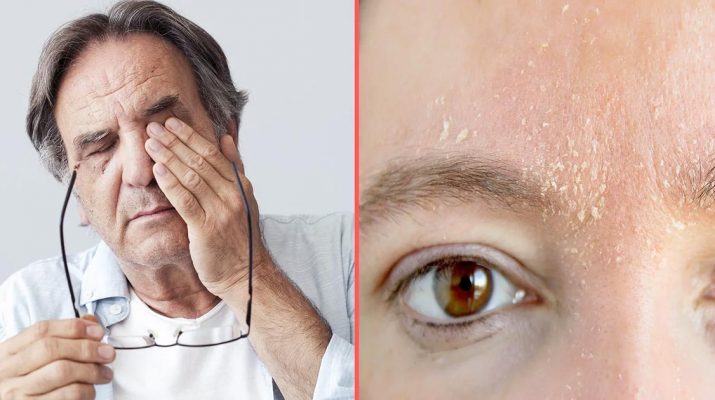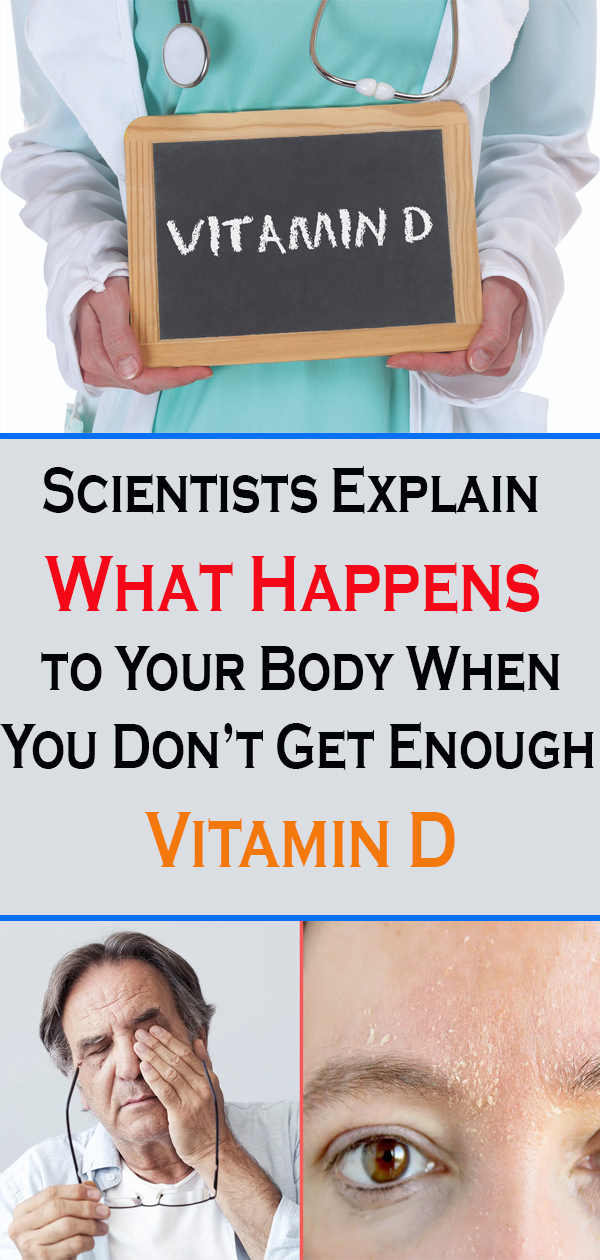According to health scientists, about 1 billion people around the world currently have a high to low range of vitamin D deficiency (VDD). (1)
However, even a small deficit can lead to symptoms and increased disease risk, such as cardiovascular disease.
Vitamin D is an essential fat-soluble nutrient we can often discover lacking in our daily diets. Your entire body uses the vitamin, so the symptoms of deficiency can vary widely. Symptoms also mimic other daily complaints that we easily brush aside.
With a strong link to major causes of death in the US, you should strongly evaluate your personal and dietary risks for D. An intervention now might provide your body with the defense it needs in the future.
Keep reading to learn more about what can occur if you’re not receiving enough.
Quick Facts About D Vitamins (2)
- Every cell in your body uses or stores vitamin D
- Almost half the world’s population is deficient
- It’s one of the easiest deficiencies to fix with food, sun exposure, and/or supplements
- Two D vitamins exist, D2 and D3; both provide the same preventative and healthful benefits
- Vegans and vegetarians are at higher risk despite many plant-based choices
- Fatty fish, eggs, and mushrooms contain high amounts of D
- Called the sunshine vitamin
- Our bodies can’t make D2, only D3
- You will find it difficult to meet your daily requirement through food alone
The Types Of Medical Conditions Linked To A Slight To Severe Vdd (3)
- Cardiovascular conditions
- Cancer
- Metabolic conditions
- Respiratory conditions
- Skin conditions
- Muscular issues
- Skeletal problems
- Neurological conditions
- Gastrointestinal conditions
Deficiency can make these conditions worse too, even when they’re related to non-deficiency causes such as genetics.
For example, you can have asthma due to underdeveloped lungs and be deficient in D vitamins. When you’re no longer deficient, your asthma remains. You might see an improvement in your symptoms though.
The same can be true for those who have both medical conditions and a vitamin deficiency. Only in cases where your deficiency is the cause could you see a reversal.
What Causes Vdd?
In its simplest form a deficiency can occur when your body lacks the vitamin D, doesn’t convert enough of it, or if an underlying condition hinders absorption.
Environmental and lifestyle factors play a role too. These might be easier to control or reverse with changes in choices and/or supplementation.
Deficiency can still occur if you don’t have high-risk factors and consume a healthy, whole food diet because age and race are predominant causes.
Who’S At The Highest Risk For Developing Vdd? (4)
- Hispanics
- African Americans
- Vegans
- Non lacto-vegetarians
- Lactose intolerance and/or milk allergy
- If you avoid fish
- If you live someplace far from the equator or spend a great deal of your time indoors
- Overuse of sunscreen
- Obese or overweight individuals
- Exclusively or partially breastfed babies
- Pregnant or breastfeeding women
- Anyone with fat absorption conditions
- If you’ve had gastric bypass surgery
Certain races, lifestyles, ages, and locations have an increased risk at developing a deficiency in vitamin D. Remember, only a blood test can let you and your doctor know your current levels and where they fall.
Who should consider having their D levels tested? Everyone really, but you should consider it if you have any of the symptoms or complaints we’ve gathered below in combination with any risk factors.
Common Symptoms Related To Vitamin D Deficiency
Previously we brushed over the common conditions deficiency can cause or worsen. Many of the ailments below overlap with complaints we can experience on occasion or daily.
That makes it difficult to self-diagnose. We suggest keeping a diary should they arise to share with your doctor. They can compare your notes with test results.
Frequent Respiratory Infections And Slowed Healing
D plays a pivotal role in your body’s ability to fight illness and bacteria. This includes the duration and severity of your sickness too. (5)
A study followed adults who frequently had respiratory-related illnesses for a year. The participants received D supplements or placebo. Adults who took the vitamin had fewer instances of illness compared to the placebo group during the course of the study. (6, 7)
Fatigue
Having an off day here or there or after a hard workout is one thing. However, if you find yourself constantly fatigued during the daytime without any cause, you could be experiencing a deficiency. (8)
Unlike other signs, a slight deficit in D can lead to fatigue and headaches for some. Symptoms usually resolve once D levels reach a normal range too. (9)
Calcium Deficiency
Calcium is another vital nutrient your body needs to function well, and D vitamins assist its absorption. When you lack D, the calcium from your food or supplements build up and can lead to other health conditions. This also means you’re at risk of being deficient in calcium too.
Bone Related Pain
Pain that radiates deep in your bones is one way you could describe the sensation. It may present at your joints, which you could shrug off as arthritis.
You can have this type of pain anywhere in your skeletal system, but the legs and ribs are common according to a popular study. (10)
Another study draws a direct link to moderate to severe back pain too. (11)
Depression
For the longest time, we referred to this type of depression as the winter blues. The sun is farthest away, and the short days limit sunlight exposure. Even if we receive enough vitamin D, we’re at higher risk for developing depression during that time.
However, you can have depression related to vitamin D deficiency yearlong too. People with depression who are also deficient tend to see an improvement in their symptoms after receiving supplements. (12, 13)
However, not all depression shares a relation to deficiency; speak with your doctor about having your vitamin level tested.
Weakened Bone Metabolism
D is vital to your bone’s metabolism. This is mostly due to the role it plays in your body’s ability to absorb calcium.
A large study found a link between low D levels in postmenopausal and menopausal women and their low bone density. (14)
If your bone density is low, you’re at a greater chance for fracture. Have your doctor check your calcium and D levels to see if you’re at risk.
Severe Hair Loss
Did you know vitamin D deficiency could cause hair loss? Stress might not be to blame after all. Of course, budding research hasn’t formed an exact link yet, but early results are drawing toward that conclusion. (15)
Scientists consider low D levels as a predominant risk factor for alopecia, for example. (16)
If you’ve noticed unusual or severe hair loss, you might want to speak with your doctor about having your vitamin levels tested.
Obesity And Unexplained Weight Gain
Research is still developing the complex link between being overweight and low D levels. However, studies do show a correlation between body mass index scores and body fat percentages in association with lower levels of D vitamins. (17, 18)
Some scientists believe fixing low D levels can lead to modest weight loss. However, you’ll have to make more adjustments to your lifestyle and food choices than taking a supplement for more significant or prolonged weight loss.
How Much D Does Your Body Actually Require?
Before supplementing, you should consult your doctor and have your levels tested. They will recommend a proper dose based on your levels and the medicine, including supplements, you already take.
However, the recommended daily allowance is 400-800 IU. Keep in mind that number is a generalization, likely based on a healthy, non-deficient adult. (19)
Can You Take Too Much?
Yes, you can when you’re supplementing. However, it generally takes long term overexposure. Be sure to check all your supplements, especially those containing blends, and consult your doctor if you have questions.
What Happens If You Take Too Much D?
The largest toxicity concern is hypervitaminosis D. Your blood calcium levels can become too high and damage your kidneys, lead to bone loss, and more. (20)
Most overdoses occur when you already have healthy levels of D or if other supplements also contain it. Please note, if your D comes from whole food sources and safe sun exposure, you’re unlikely to be at risk for overdose even with a supplement.
Vegan Sources Of D Vitamins
- Fortified orange juice
- Plant-based milk alternatives
- Fortified cereal
- MushroomsTofu
- Safe sun exposure
Final Thoughts On Vdd And D Vitamins
Sunscreen and spending more time indoors than outside can have consequences on your vitamin D levels. It can cause deficiency too since inadequate levels exist in the foods we eat, and the risk factors appear to be broader than any other vitamin shortage,
However, before you reach for supplements, you should speak with your doctor. Toxicity is rare but serious. Your doctor can provide you with a custom daily-recommended dose too.
In the meantime, eat your mushrooms, fortified cereals, non-dairy milk, and practice safe sunning to combat low D levels naturally.


